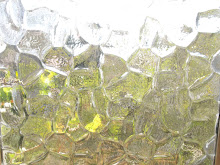There is what most working people who read in this country read and then there is what creative writing majors in universities study. These can be distinguished as fiction, for the later, and genre fiction for the former. The modifier “genre” is used here as a derogative term, reducing the value or significance of the object. It is a dirty word among writerly types.
Dan Chaon is a great and famous writer who happened to be my advisor in college. He has written 2 novels and 2 collections of short stories. He thinks that as he matures as an adult, he should listen to jazz but instead listens to lo-fi indie rock bands like Smog. He lives in an upscale neighborhood of Cleveland with large, dignified houses on a mature, tree-lined boulevard. Perhaps Dan’s most prominent achievement as a writer is a short story called Big Me which won a second place O Henry award in 2001. It’s an eerie story about an older man reflected on his time as youth who sees himself reflected in a creepy older man. Many of Dan’s stories have disturbing themes and contain elements of horror novels. When I was in school, he was asked to write a new forward to Mary Shelley’s Frankenstein.
Dan is not considered a genre writer. There is some blurring of the lines here. Stephen King, for instance, is a genre writer. Any book you’ve ever read about vampires, detectives, psychopathic killers, soldiers or werewolves is genre fiction. There are several authors now who are intentionally blurring these lines; Michael Chabon being perhaps the first to make it OK to like genre fiction and not feel guilty about it.
What is genre fiction? Regular fiction is a story that involves not necessarily ordinary but generally people who you could imagine yourself being or relating to and their emotions. It explores the so-called human condition, and therefore claims aspiration to a higher purpose of helping us to understand ourselves and the world. Genre fiction, on the other hand, is what you read when you’ve put in your 8 hours, your back hurts, there’s a stack of bills on the table, the kids are safely put to bed, and you need to fucking veg out and lose yourself in something good. Genre fiction is the kind of book that you read cover to cover because you physically can’t keep from turning each page after you finish the previous, even though you know you have other business to attend to.
Is genre fiction a bad thing? Genre fiction is only mentioned as a foil by "real" writers. It is not the sort of thing that one studies. Stephen King, for instance, was mentioned frequently during my education in exactly 2 contexts: One, as the epitome of just pumping out formulaic mass market pulp and, Two, as about the only writer who actually makes a living off writing and selling books.
My dad has read every book, sentence and word Stephen King has ever published. I’ve managed to read one collection of his short stories, including the story Quitters, Inc. which was actually pretty good and more akin to the Big Me style of normal/genre fiction than anything else of King’s. I’ve tried to read King’s actual novels and haven’t been able to stomach it. I’m sure I’ll try again some day.
There’s certainly a place in the world for escape. Reading can be stimulating and a salve in the same way TV shows are for most people. So it’s not the bottom of the barrel as far as entertainment goes. Yes, perhaps fantasy and fiction distract from certain pressing issues that are occurring in the world around us every day. Yes, they allow us to insulate ourselves from the harsh realities of the manmade world, which we ourselves are often perpetuating. But there’s a certain undeniable brilliance with which they can be executed as well. If I learned anything from Dan, it’s to appreciate this. To seek it out, explore it, feel uncomfortable it, and appreciate that.
I’ve previously gone on zombie movie kicks (unfortunately I wasn’t writing a blog at that time) and am currently on a samurai movie kick. I also have a great affection for all of H.P. Lovecraft’s short stories. There’s something so satisfying about knowing what you’re going to get from a medium, and then getting it exactly in the way you want it, ingenuously, stripped bare of all other complicating elements. After all, there’s a infinite well of creative ways to explore the idea of the undead devouring the living, of Jason exacting revenge on hapless teenage campers, or of ronin upholding their certain individual dignity and code despite the world moving past having a use for them.
I will never be able to think of small fishing towns in New England without imagining one of Lovecraft’s cults of the Ancient Ones existing just beneath the surface, in the boarded up buildings, seeping out into the bay at night to conduct unspeakable and shocking rituals. I have no shame in appreciating genre fiction; I would much rather see something done well within defined limits than something sloppy which strikes out into the unknown.
That being said, I’m currently 1 hour, 3 minutes, 50 seconds into Jet Li’s Ying xiong (English title: Hero). It’s fantastic. It’s an incredibly beautiful movie in which people are also killed in fantastic ways. I highly recommend it to all consumers of culture, be it high or low.

No comments:
Post a Comment